Understanding and Strengthening Resilience for Peace in Timor-Leste
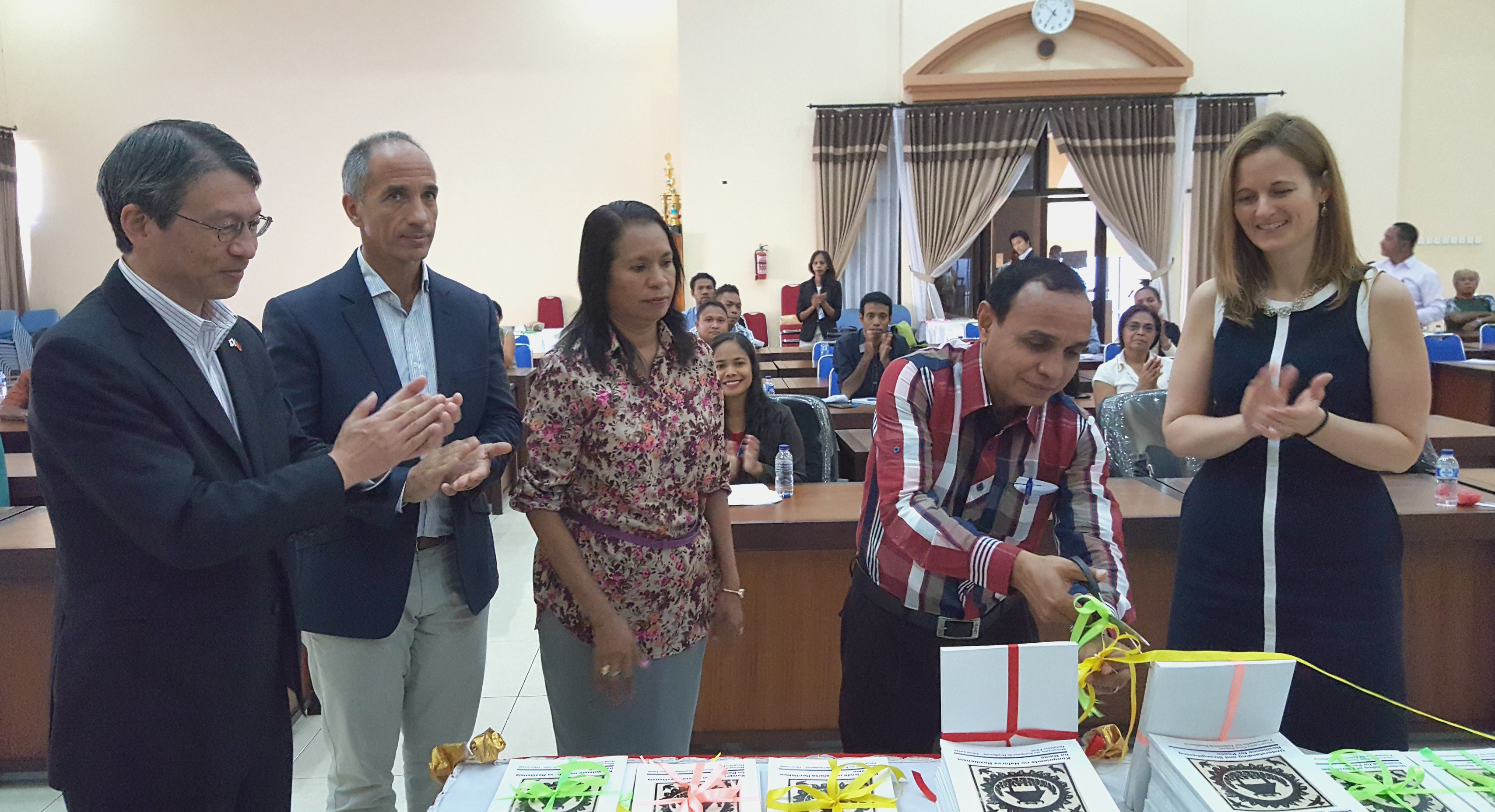
Understanding the resilient capacities of local actors during and after violent conflicts, has been one of Interpeace’s main objectives in the past two years. Determining how these existing capacities for resilience can be strengthened to contribute to sustainable peace, has been at the heart of our programme Frameworks for Assessing Resilience (FAR), implemented in three contexts: Guatemala, Liberia, and Timor-Leste.
During two years, Interpeace and the Centre of Studies for Peace and Development (CEPAD) led a multi-stakeholder process that sought to identify and promote resilient capacities of the people in Timor-Leste. The research encompassed an inclusive and participatory process that engaged communities at the grassroots, as well as representatives of civil society organizations and government institutions. The project generated rich qualitative and quantitative data and analysis, through in-depth interviews and focus groups, forums, dialogue processes, and a nationwide survey polling close to 3,000 respondents.
On June 15 2016, CEPAD organized the launch of the Frameworks for Assessing Resilience final reports and the Deputy Director General of Interpeace, Renée Larivière, participated in the event by discussing the work of Interpeace and CEPAD, and the importance of a resilience lens in peacebuilding contexts.
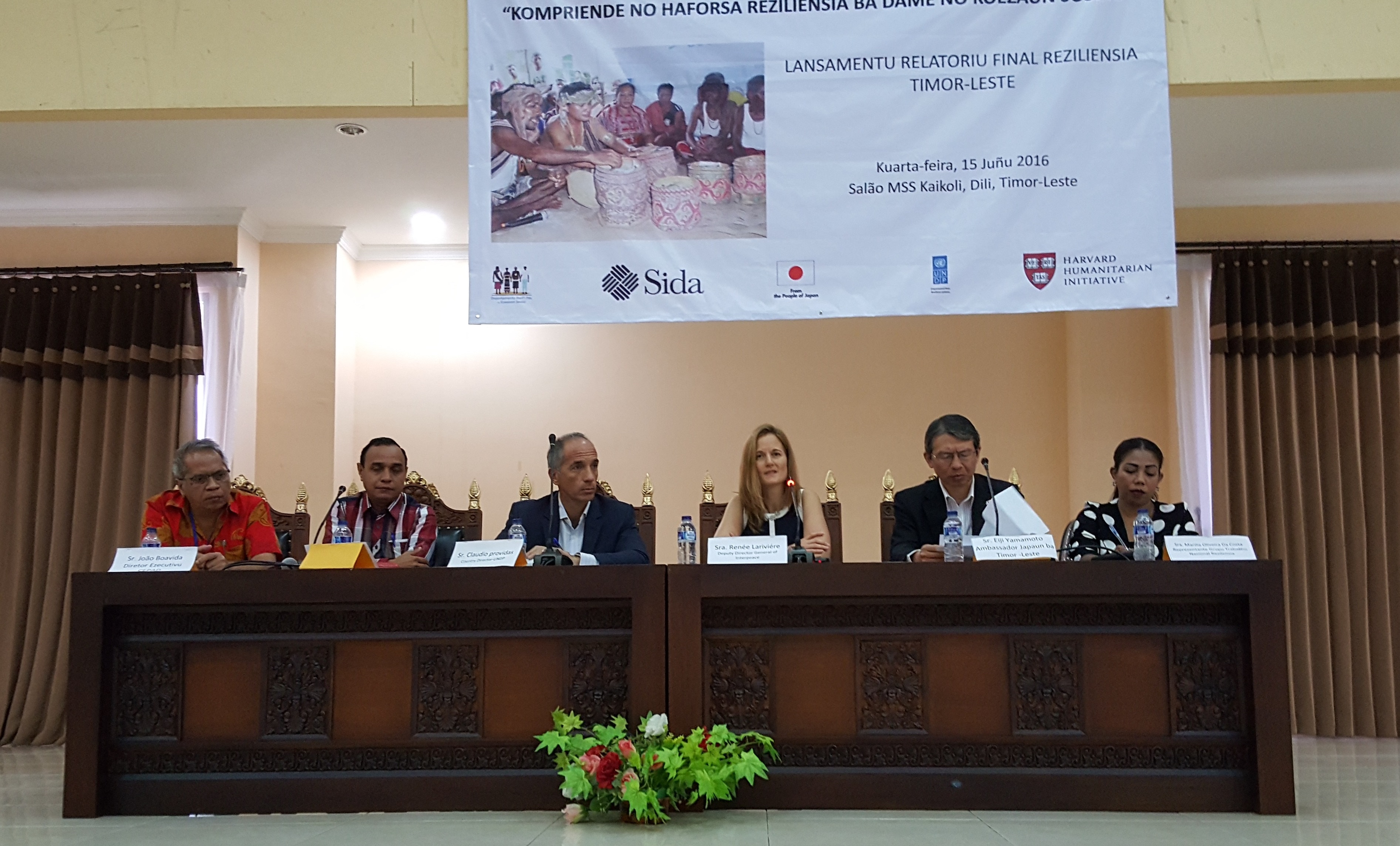
Speakers at the launch of FAR final report in Timor-Leste on June 15, 2016: Mr. Joao Boavida, Executive Director - CEPAD; Ministry of Social Solidarity; Mr. Claudio Providas, Country Director - UNDP; Ms. Renée Larivière, Deputy Director General of Interpeace; Mr. Eiji Yamamoto, Japan Ambassador for Timor-Leste; Member of National Working Group.
Through the findings of this research, recommendations and plans of action were developed to understand what resilience for peace looks like and how it can be strengthened in Timor-Leste. According to the results of this research, the key to resilience lays in the strengthening of the relations between the state and its citizens, which relies on trust, inclusion, justice and active participation. A national working group was created during the validation of the findings and will be focusing on promoting good quality leadership at all local and national levels as a positive contribution to strengthening the resilient capacities of Timorese.
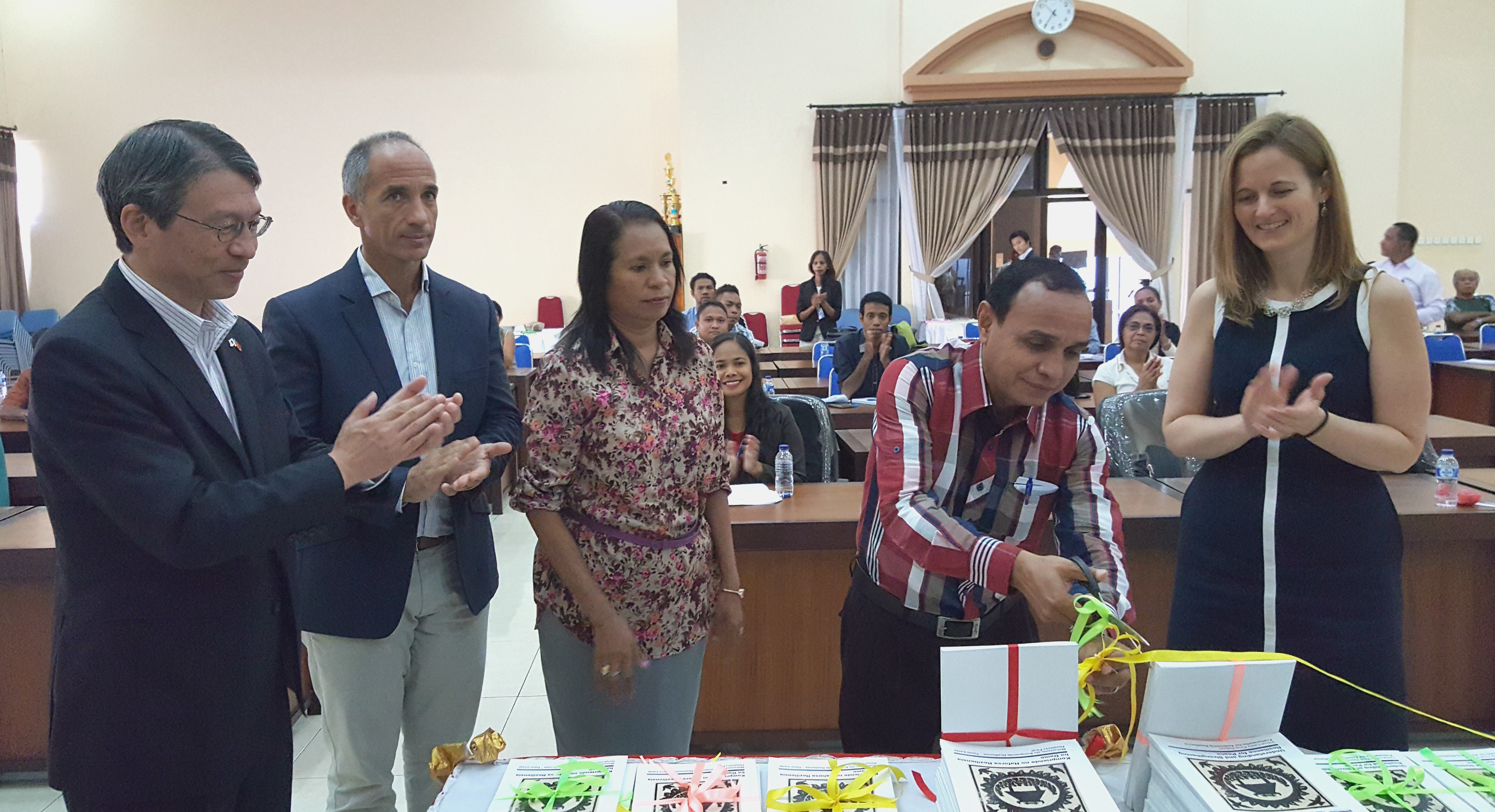
Timor-Leste launch of the FAR final reports.
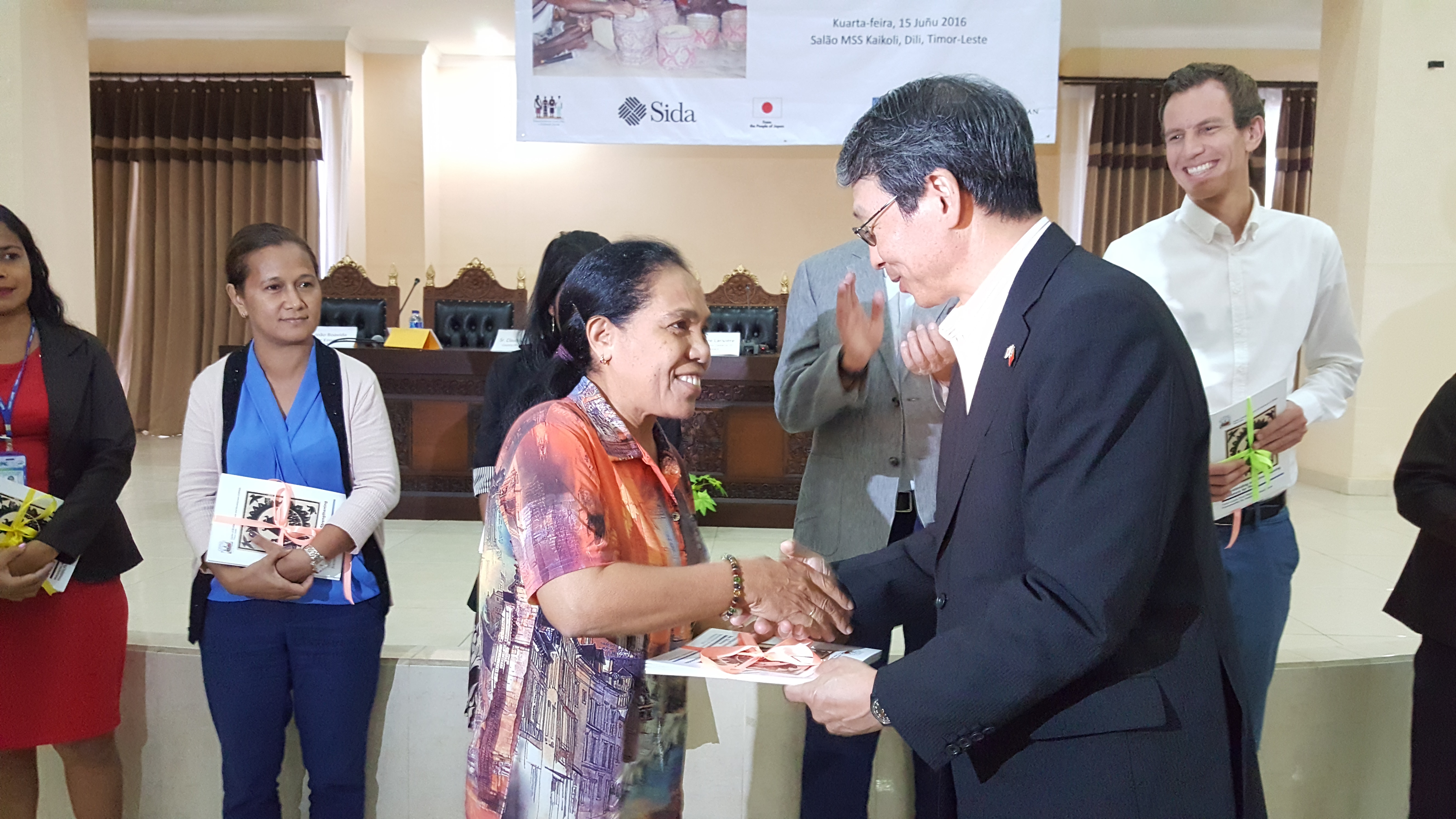
Timorese receive FAR final reports.
To learn more about the findings and results of the FAR programme in Timor-Leste read the final report: Understanding and Strengthening Resilience for Peace.
For additional information:
Read report published by CEPAD in April 2015: Understanding Resilience from a Local Perspective.
Read survey report published by HHI in April 2016: Population-Based Survey on Attitudes and Perceptions About Resilience and Peace.
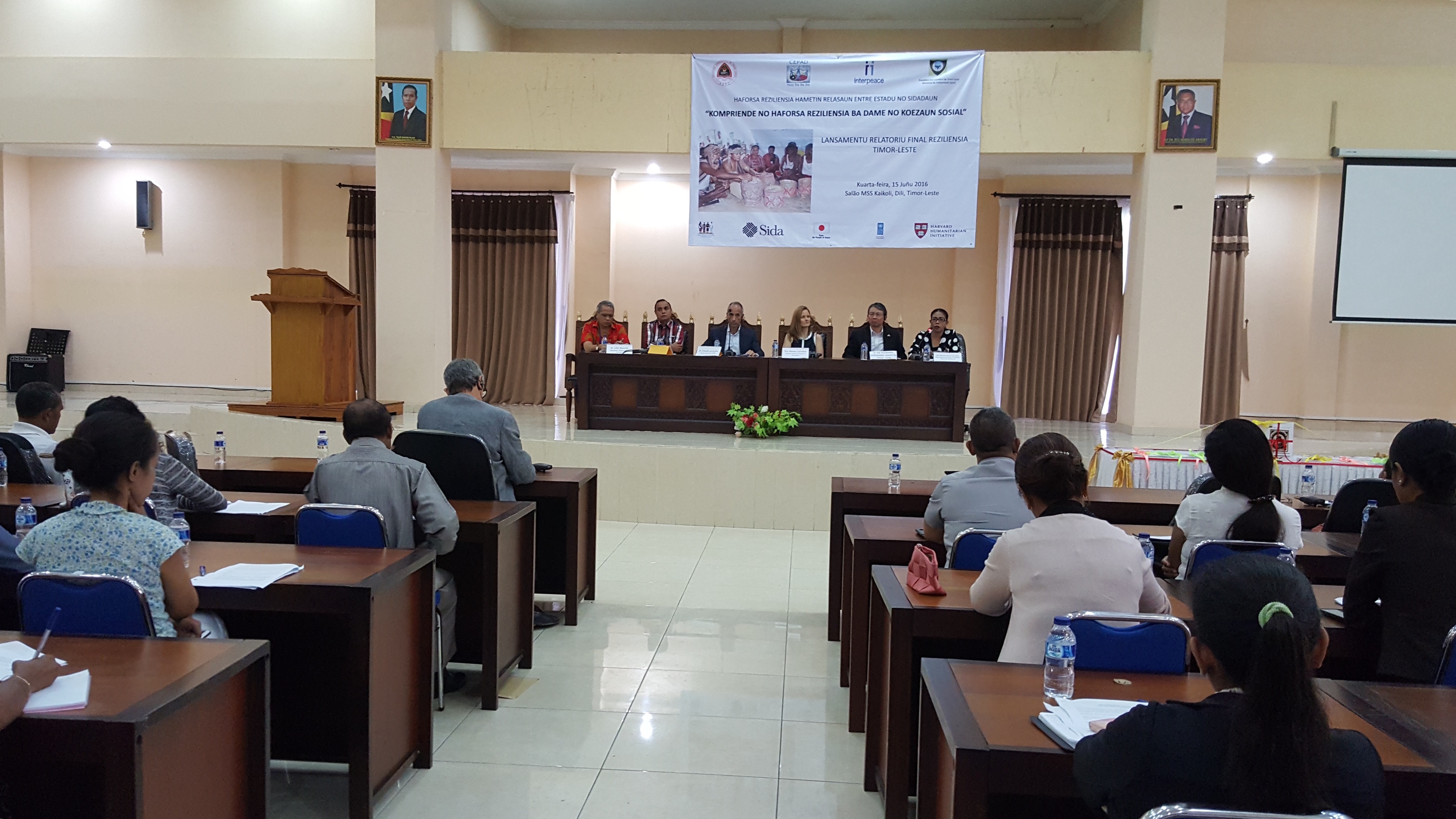
Event organized by CEPAD to launch FAR final reports in Timor-Leste
